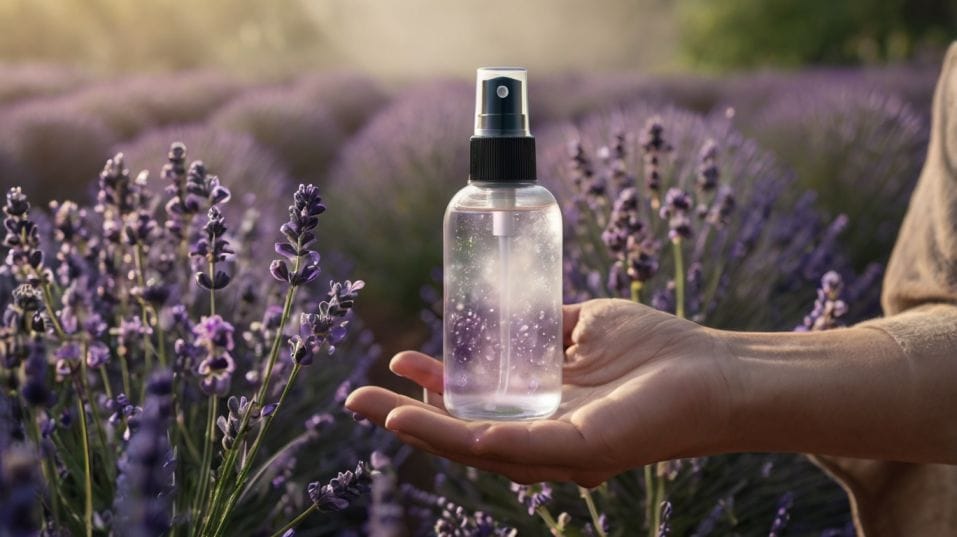Are Natural Sleep Sprays Backed by Science?
Curious if natural sleep sprays really work? Discover the science behind them—and how to use one to fall asleep faster and wake up sharper.

Ever wonder if a spray could actually help you sleep better? If you're tired of restless nights and curious about natural solutions, you're not alone.
Sleep sprays are trending for a reason—just a mist on your pillow and you're on your way to deeper rest. But are they legit or just hype in a bottle?
Let's break it down so you can decide what really works and how to use these tools to sleep smarter, starting tonight.
What Exactly Is a Natural Sleep Spray?
Natural sleep sprays are typically mist-based products infused with essential oils known for their calming or sedative properties.
You spray them on your pillow, sheets, or in the air before bed. Some sprays include a touch of melatonin or magnesium, but the majority rely on botanical ingredients to help your brain shift into rest mode.
Common Ingredients
- Lavender – The most studied essential oil for sleep support.
- Chamomile – Known for its calming, anti-anxiety effects.
- Bergamot – A citrus scent that helps reduce stress without being stimulating.
- Cedarwood and Sandalwood – Earthy tones that can help promote a grounded, relaxed state.
It’s not about knocking you out. It’s about setting the stage so your nervous system naturally calms down, your breath slows, and your body does what it’s built to do: sleep.

What the Research Actually Says
Let’s be clear: a sleep spray isn’t a magic potion. But certain ingredients, especially lavender oil, are backed by real science.
A 2015 study published in The Journal of Alternative and Complementary Medicine found that college students who inhaled lavender oil before sleep reported better quality rest and more daytime energy.
Another study in Complementary Therapies in Clinical Practice tracked ICU patients and found that those exposed to lavender aromatherapy slept significantly better—even in a high-stress hospital setting.
How It Works
Here’s what’s really happening: when you inhale essential oils, compounds travel through your olfactory system directly into your brain’s limbic region—home to emotions, memory, and the autonomic nervous system.
This is the same part of your brain that regulates your heart rate, blood pressure, and stress response.
So, in practical terms: the right scent can nudge your body toward relaxation. It lowers your fight-or-flight response and helps shift you into a parasympathetic (rest-and-digest) state. And that’s exactly where sleep lives.
The Real-World Benefits You’ll Actually Notice
You’re not here for theory. You want to wake up feeling refreshed, less groggy, more focused. Here’s how natural sleep sprays help you get there:
- You fall asleep faster. Scent cues calm your nervous system and reduce pre-sleep anxiety.
- You stay asleep longer. Aromatherapy may help regulate your sleep cycles, especially in the early part of the night when your body transitions into deep sleep.
- You wake up clearer. Better quality sleep means improved cognition, mood, and energy the next day.
You’ll especially notice the benefits if your insomnia or restlessness comes from stress, racing thoughts, or inconsistent bedtime routines. That’s where the calming ritual of a spray truly shines.
How to Use Sleep Sprays for Maximum Impact
There’s no need to complicate this. Here’s how to make your sleep spray actually work for you:
- Spray your pillow 5–10 minutes before bed. This allows the scent to settle without overpowering your senses.
- Layer it with other sleep cues. Turn off bright lights. Power down your devices. Sit or lie still. Let your body know it’s time to slow down.
- Breathe intentionally. Take a few slow, deep breaths once you’re lying down. This helps your brain associate the scent with relaxation.
- Be consistent. Use your spray every night for at least a week. Repetition builds association, and your body begins to respond faster over time.
Some people also spray a blanket, their pajamas, or a towel near the head of the bed. It’s flexible—do what feels natural and creates a calm environment.
Why the Routine Matters as Much as the Spray
Here’s a truth you won’t hear on a product label: it’s not just the spray that helps—it’s the act of using it. That few seconds of misting becomes a signal to your brain. A switch. A ritual.
Routine is how your body learns what to expect. When you combine a calming scent with a consistent nightly wind-down process, you’re creating a powerful sleep association loop.
The spray becomes a trigger for your entire system to start shutting down for the night.
This behavioral pattern is what makes habits stick. It turns sleep into something predictable and automatic, not another thing to chase.
What to Look for When Buying One
If you’re going to use a sleep spray, make sure it’s worth it. Look for:
- 100% pure essential oils – Not synthetic fragrances, which don’t offer the same benefits.
- Clear labeling – You should see ingredients like “lavandula angustifolia” (true lavender), not vague terms like “fragrance” or “perfume.”
- No unnecessary fillers – You don’t need dyes, parabens, or alcohols.
- A calming scent blend – Stick with one or two proven ingredients rather than a long list of trendy oils.
If you’re not sure where to start, go with a lavender-based formula. It’s the most researched and most reliable.
Final Thoughts: Small Spray, Big Impact
Yes—natural sleep sprays are backed by science. Not as miracle cures, but as real tools that help shift your body into rest mode.
When used consistently and combined with smart nighttime habits, they can seriously upgrade how you sleep—and how you feel the next day.
So start tonight. Find a high-quality spray, dim the lights, take a breath, and mist your pillow. Keep it simple. Make it consistent. Let your brain and body get the message: it’s time to rest. Sleep better, live better—starting now.




